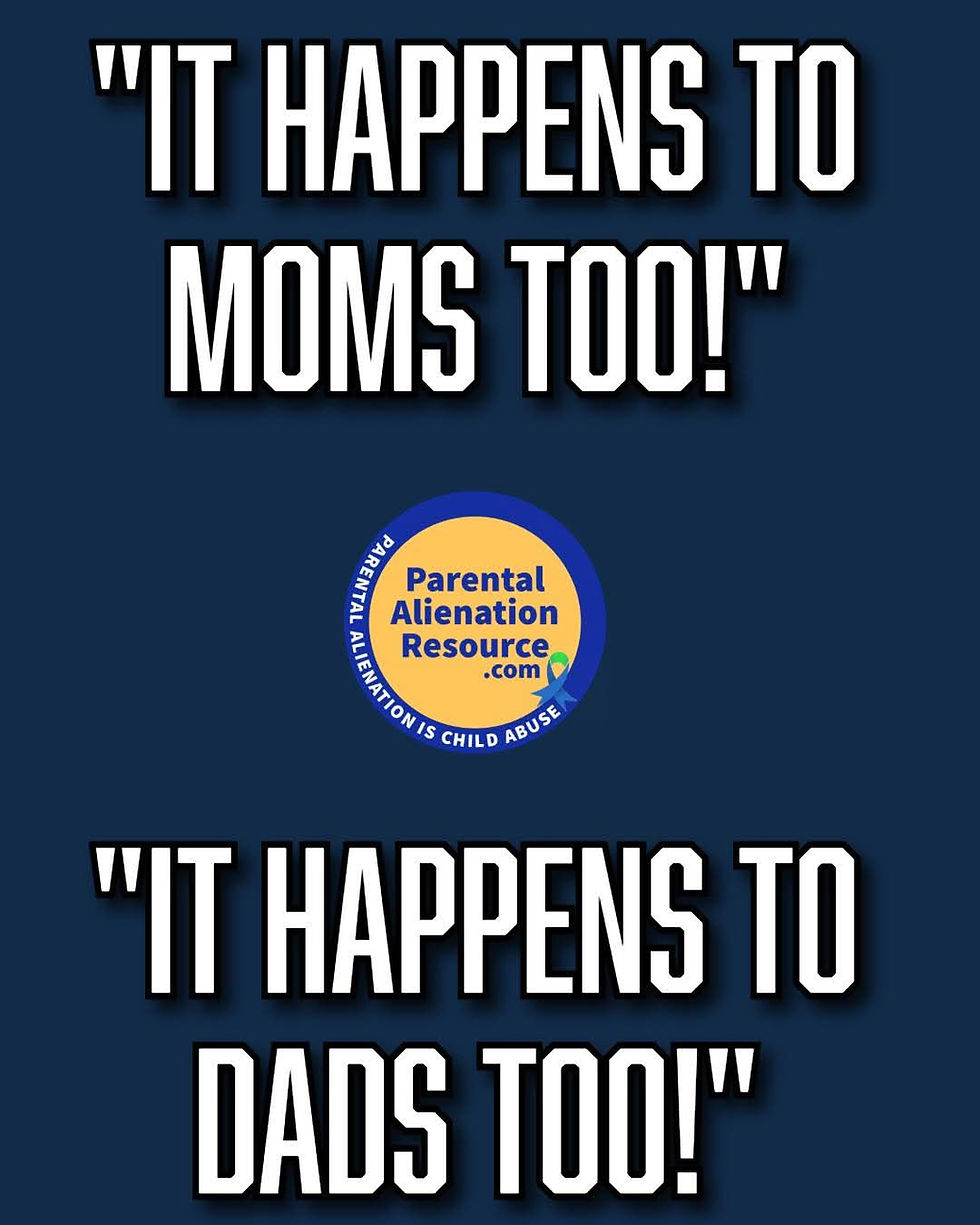Why should a parent not be made to look like a villian by the alienating parent and the guardian ad litem because therapeutic communications were ordered between them and their child
- Parental Alienation Resource

- Apr 4, 2024
- 2 min read

Making a parent look like a villain in the context of therapeutic communications ordered between the parent and child can have detrimental effects on all parties involved, including the child. Here are some reasons why it's important to avoid this behavior:
1. Psychological Impact on the Child: Painting one parent as a villain can cause emotional harm to the child by instilling feelings of fear, resentment, guilt, or confusion. This can lead to long-term psychological issues and disrupt the child's sense of security and well-being.
2. Undermining the Parent-Child Relationship: Vilifying a parent can damage the parent-child relationship irreparably, making it harder for the child to form a healthy bond with both parents. This can affect the child's emotional development and their ability to form relationships in the future.
3. Interfering with Therapeutic Process: When one parent is portrayed as a villain, it can hinder the effectiveness of therapy by creating a hostile environment that impedes open communication and trust-building. Therapeutic goals such as reconciliation and healing become more challenging to achieve.
4. Legal and Ethical Concerns: Vilifying a parent can raise legal and ethical concerns, especially in cases involving custody disputes or court-appointed professionals like guardian ad litems. It may be considered a form of emotional abuse or manipulation, leading to further legal complications.
5. Promoting Unhealthy Coping Strategies: Encouraging a child to see one parent as a villain can promote unhealthy coping strategies, such as denial, avoidance, or scapegoating. These strategies can negatively impact the child's ability to cope with complex emotions and conflicts in a healthy manner.
6. Maintaining Balance and Fairness: In therapeutic communications, it's crucial to maintain balance and fairness in addressing issues between the parent and child. Vilifying one party undermines the principles of fairness, understanding, and constructive problem-solving essential for effective therapy.
Ultimately, the focus of therapeutic communications in cases of parental alienation should be on promoting healing, understanding, and healthy relationships. Vilifying a parent only serves to perpetuate conflict, damage relationships, and harm the well-being of the child and all parties involved.









Comments